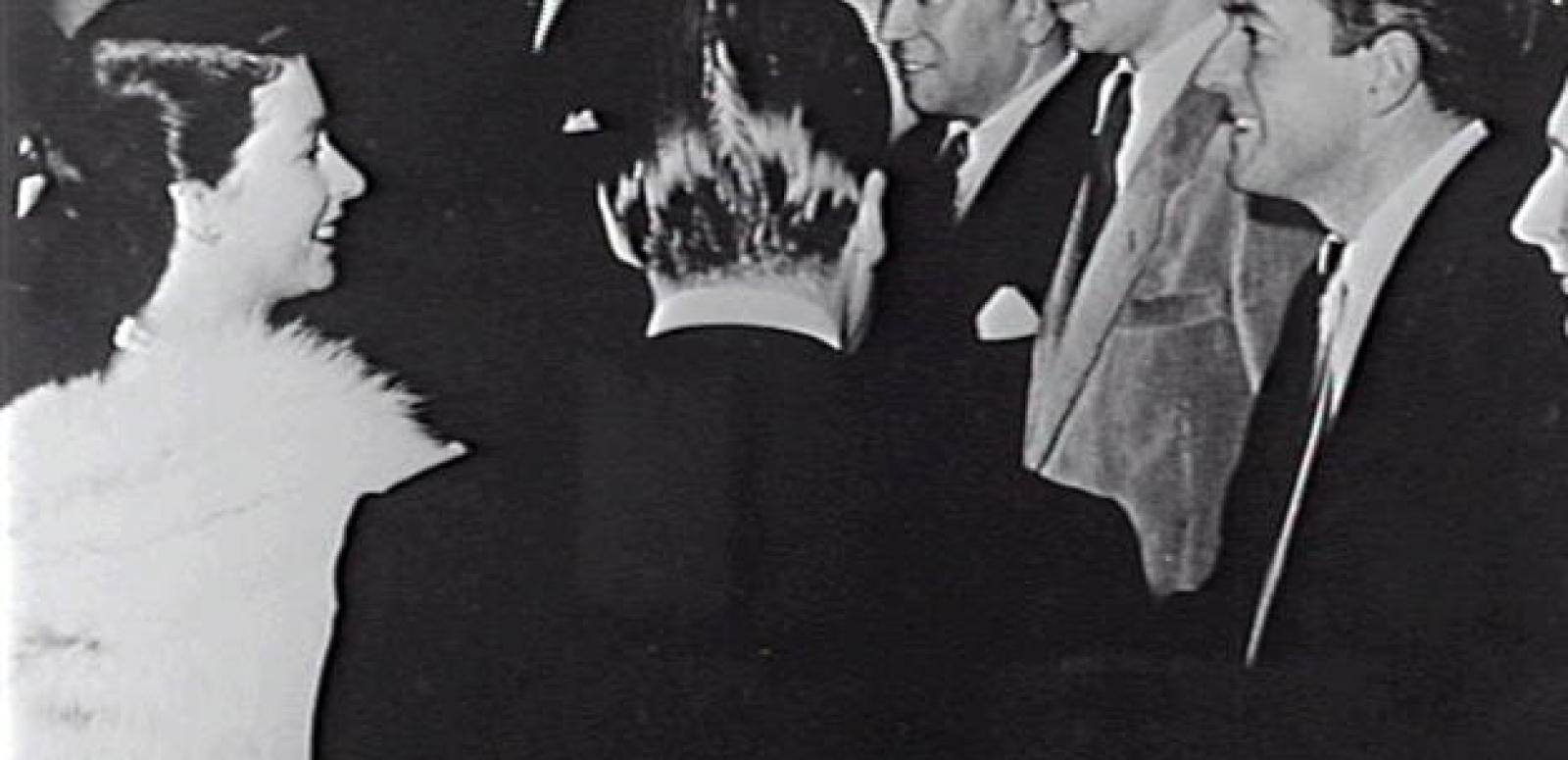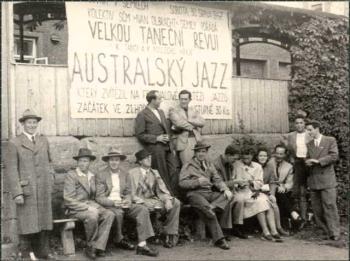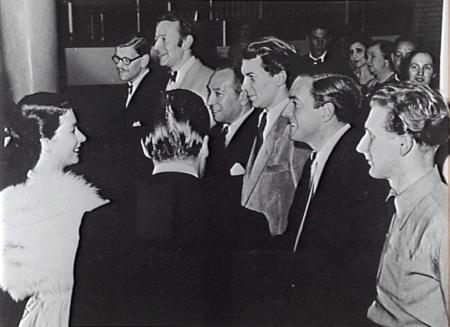The NFSA marks the death of Australian jazz legend Graeme Bell, who passed away in Sydney on 13 June 2012 at the age of 97.

The NFSA marks the death of Australian jazz legend Graeme Bell, who passed away in Sydney on 13 June 2012 at the age of 97.

Pianist, composer, band leader and a passionate promoter of jazz in Australia, Bell had a musical career which spanned 70 years. He is regarded by many as the most influential jazz musician that Australia has ever produced.
Graeme first trained as a classical pianist but was converted to jazz by his brother Roger Bell, playing their first gig together in 1935 in a Scout Hall as the ‘Hot Air Men’.
As well as being a superb musician, he was an active member of the Australian jazz community who worked to raise the profile of Australian jazz. He created opportunities for jazz musicians to play, set up the Uptown Jazz Club and formed groups such as the Victorian Jazz Lovers Society.
This is an excerpt from 'Two Day Jag’, one of the first jazz recordings of Graeme Bell’s Dixieland Band, from a session in January 1944:
An excerpt from 'Two Day Jag’, one of the first jazz recordings of Graeme Bell’s Dixieland Band, from a session in January 1944. NFSA title: 232811
Bell is also remembered for playing a part in the Australian Jazz Convention, a movement during the Second World War which was a magnet for radical arts and political groups including the Eureka Youth League. During his long career, he toured extensively both nationally and internationally, perhaps most significantly to the World Youth Festival in Czechoslovakia in 1947. Graeme was made a Member of the British Empire (MBE) in 1978, an Officer of the Order of Australia in 1990 and was inducted into the ARIA Hall of Fame in 1997.

Bell is also featured in the NFSA’s Film Australia Collection. Australian Colour Diary 37: Country Jazz captures the New South Wales township of Dubbo in the throes of a jazz festival – the 25th Annual Australian Jazz Convention 1970 – and New Year’s Eve celebrations.
Musicians featured include the original Graeme Bell Australian Jazz Band (playing 'At a Geogia Camp Meeting’); Lachie Thompson’s New Whispering Gold Orchestra ('Old Time Religion’, featuring vocals by Margaret Roadknight); Nick Polities and His New Year’s Revelers; and the Dubbo Corps Salvation Army Band.
It was directed by Bob Kingsbury and produced by The Commonwealth Film Unit 1971:
Country Jazz: Australian Colour Diary 37, Commonwealth Film Unit, 1971. NFSA title: 12739
Graeme was a strong supporter of the National Film and Sound Archive and was committed to ensuring Australia’s jazz history was preserved. He donated much of his personal archive to the NFSA’s collection. We hold photos, posters, letters, concert programs, speeches and lots of the beautiful music that he made over his long career.
His first commercial recordings, ‘Swanston St Shamble’ and ‘Two Day Jag’, made in 1944 on Ampersand Records, are also in the collection and in 2007 were recognised by the NFSA for their significance when they were made part of the National Register of Recorded Sound, Sounds of Australia.
The National Film and Sound Archive of Australia acknowledges Australia’s Aboriginal and Torres Strait Islander peoples as the Traditional Custodians of the land on which we work and live and gives respect to their Elders both past and present.